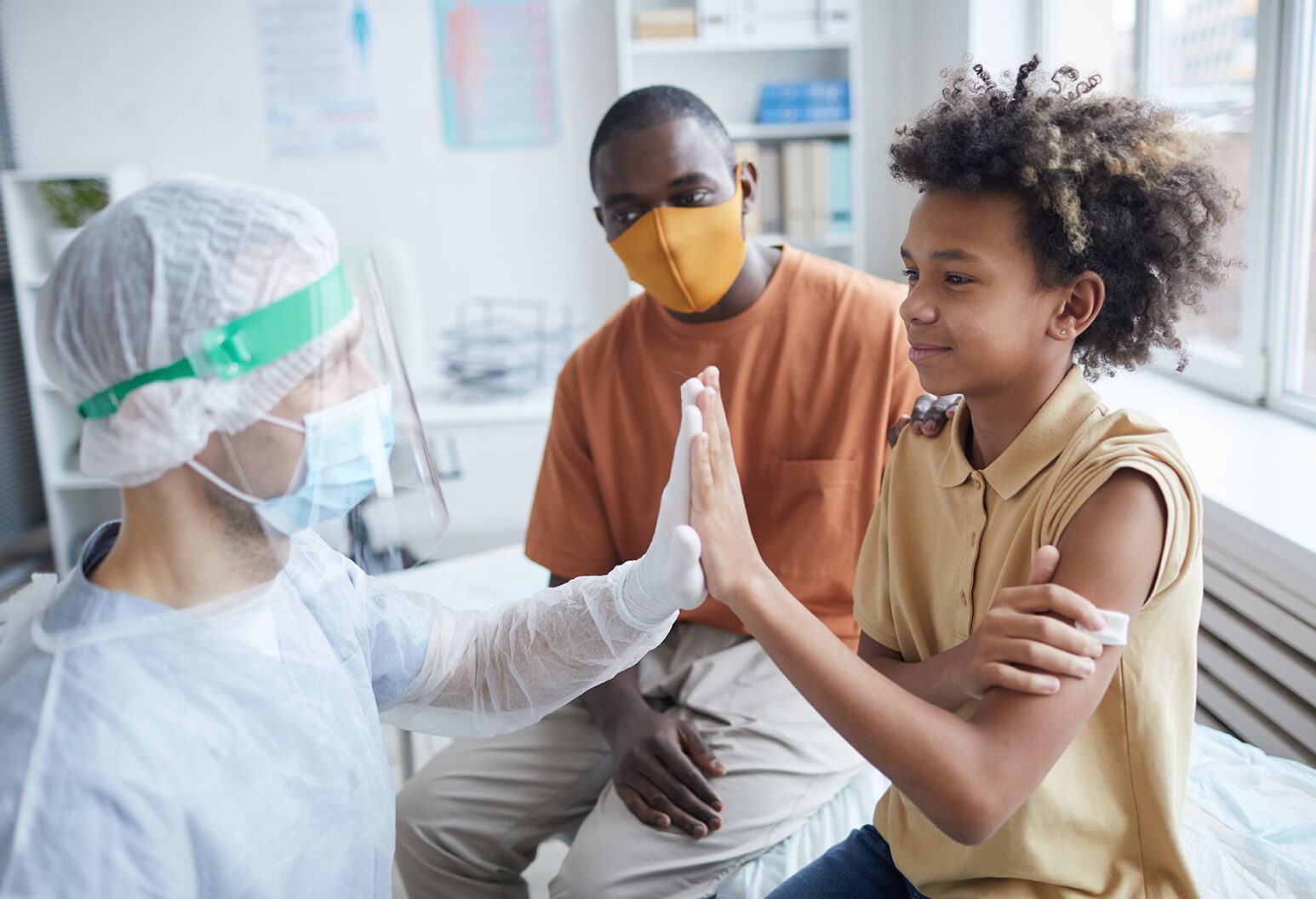This story appeared in Northwell Health. Read more here.
With hundreds of millions of COVID-19 vaccines already administered and historic close monitoring in the United States, the benefits of the vaccines continue to outweigh the risks. The Food and Drug Administration (FDA) and the Advisory Committee on Immunization Practices (ACIP) of the Centers for Disease Control and Prevention (CDC) are keeping close watch on potential risks from the vaccines.
Recently, myocarditis and vaccines have received attention after reports of approximately 300 observed cases of the rare heart condition in young men following COVID inoculations. The cases seem to occur mostly in adolescents and young adults (primarily in males), more often after the second vaccine dose, typically within four days after vaccination.
These reports do warrant continued medical investigation, explanation and discussion. However, the ACIP has concluded that “the benefits of COVID-19 vaccination to individual persons and at the population level clearly outweighed the risks of myocarditis after vaccination.” And the American Academy of Pediatrics agrees.
Myocarditis can inflame, enlarge and weaken the heart, and create scar tissue, all of which can force the heart to work harder to circulate blood and oxygen throughout the body — temporarily.
For patients who do develop the cardiac condition, the CDC has good news: “Most patients who received care responded well to treatment and rest and quickly felt better.” And, although treatment for myocarditis can include anti-inflammatory medications, some patients who recover fully without treatment.
In the United States and other developed countries, viral infections—Cocksackie/Enterovirus, Parvovirus B19 and human herpes Virus 6—are the most common causes of myocarditis. Cancer and bacterial infections also can play a role in causing myocarditis and, in developing countries, so can rheumatic carditis, Chagas disease, and complications related to advanced HIV/AIDS. Other causes of the inflammatory condition can include exposure to environmental toxins and certain autoimmune diseases.
Symptoms of myocarditis can include:
- shortness of breath, especially after exercise or lying down
- fatigue
- heart palpitations
- chest pain or pressure
- lightheadedness
- swelling in the hands, legs, ankles and feet
- a sudden loss of consciousness
With myocarditis in mind, the Food and Drug Administration (FDA) has issued a fact sheet for healthcare providers administering vaccines acknowledging “an increased risks of myocarditis and pericarditis, particularly following the second dose and with onset of symptoms within a few days after vaccination.” The FDA has similarly raised awareness about a “rare and serious type of blood clot in people who receive the Johnson & Johnson vaccine,” and addressed it with an amendment to that vaccine’s Emergency Use Authorization.
Strong vaccine safety nets in place
There is even more reassurance about COVID-19 vaccines: The medical safety net ensuring vaccine safety is nothing short of historic. Four reporting programs are working to collect, interpret, and understand data associated with possible vaccine reactions.
- The CDC’s V-Safe after vaccination health checker allows patients to use smartphones to report post-vaccine side effects to the agency specifically for the COVID vaccines. The free app sends a daily text message to ask patients how they’re feeling for the first week after they receive the vaccine; a weekly message for up to five more weeks; a reminder to get the second vaccine dose; a six-week check-in for patients to share their second-dose vaccine experience; and three-, six-, and 12-month check ins after the final dose of vaccine.
- The CDC and FDA also manage a national database called the Vaccine Adverse Event Reporting System (VAERS). This “early-warning system” detects problems possibly related to vaccines. Relying on reports from health care providers, vaccine manufacturers, and the general public, VAERS provides the CDC and FDA with information that helps identify health concerns and ensure vaccine safety.
- The Clinical Immunization Safety Assessment Project (CISA) is a national network of vaccine safety experts from the CDC’s Immunization Safety Office (ISO) and medical research centers, which addresses vaccine safety issues, conducts clinical research and evaluates adverse events following vaccination. CISA enables health care providers to consult with experts when vaccine safety questions arise, or specific US-based patients experience adverse events following immunization.
- There’s also the Vaccine Safety Datalink (VSD) created by the CDC to carefully research vaccine safety in large populations. It gathers electronic health record data from nine participating integrated health care organizations on more than 12 million people per year to study questions or concerns that may arise. It also helps track possible adverse events related to new vaccines and evolving recommendations.
These reporting and surveillance programs provide powerful ways for the US to safely vaccinate our country against COVID-19. And they’re telling us that the benefits of the COVID-19 vaccine clinically outweigh the risks.
Remember: The SARS-CoV-2 virus infection causes COVID-19 disease, which can include a concerning impact on the heart, as well as disease and death involving multiple organs in the body. That makes vaccination key.
COVID-19 has presented unknowns. But what we do know, is that COVID-19 vaccines are incredibly safe and effective overall. They help prevent hospitalization, care in the intensive care unit, and death. I encourage your family, friends, and community members to get their COVID-19 vaccine. All of our lives depend on it.

